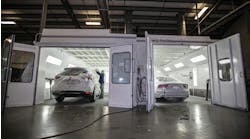Life these days feels a little bit to me like a game of Jumanji. If you’ve seen the movie, you might know what I mean: One minute you’re sitting down at home to play a board game. You roll the dice and, all of sudden, giant mosquitoes are buzzing around the room as you run to avoid getting stung. They eventually fly out the window, and you roll the dice again, and a band of wild monkey is running around the house throwing dishes and anything else not nailed down. That crisis gets averted, you roll the dice, and suddenly there are elephants running up the street out front, making total losses out of parked cars. A few more rolls of the die, and you’re suddenly in the midst of jungle vines and rhinos and cheetahs and pythons – and the whole world doesn’t look anything like the one in which you started to play the game.
Does that seem a little like what this year has felt like to you?
Perhaps like some of you, I wrote a 2020 business plan for my company last December. In the middle of February, I re-wrote it. At the end of March, I re-wrote it yet again. And as the spring progressed, it seemed a bit fruitless to do more revisions until at least something ahead seemed at least somewhat predictable.
Everyone is looking for and talking about when things will get “back to normal.” I keep hearing from a lot of shops, “We just need to ride this out for a few more weeks and we’ll be good.” What I think we all need to consider is that it won’t ever get “back to normal.” At least not exactly to the way it was. Consider some of the things that changed “forever” after 9-11 (think about air travel, for example) or after the Great Recession (think about home financing practices). Events like these change what “normal” looks like.
Take telecommuting. Are we quickly going to return to scores of white collar workers driving downtown to high-rise office buildings full of people? Maybe some, of course. But many workers and companies are finding that’s no longer necessary – and maybe not even desirable.
On the other hand, people might not like the idea of getting on a bus, subway, train or airplane so may drive instead. I live in Portland and have an office in Seattle and used to fly to Seattle all the time. I’m driving to Seattle now.
So who knows what to expect?
That why I’m saying instead of trying to guess what lies ahead, spend that energy making sure you nimble and flexible, able to adapt quickly. A tug boat pulling a barge can’t turn left quickly. It’s going to take two miles to get that barge turned. That’s fine in the middle of the ocean, but it’s not going to happen in a narrow river.
Let’s say two months after all the stay-at-home orders are lifted (whenever that happens) and your business is at, say, 80 percent of where it was in terms of revenue. Can your business withstand an ongoing 20 percent hit if that is as close to “normal” as you’ll get for the foreseeable future?
Can you make that left-hand turn if that’s what’s needed – and then turn right quickly if that suddenly becomes the route you clearly need to go? Do you have a culture that supports that adaptability?
If you have ever been in a physical fight, you may have experienced that sense of being in control as it’s going well for you. But then there’s suddenly that moment when you’re not. That left hook comes in, and, bam, you are now off-balance. You realize you are no longer in control and may even be in real danger.
You can’t let that happen at your business. You have to be on your toes. You have to stay on your game if you’re going to survive. I can’t tell you what that looks like for your business. It might mean running lean, diversifying your businesses, finding new revenue sources.
But there’s one thing I can tell you with certainty about the future: If you can’t spin on a dime, you’re probably not going to make it.




